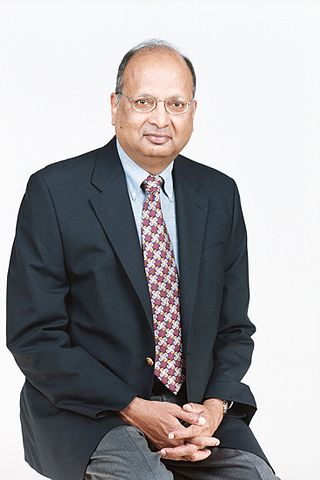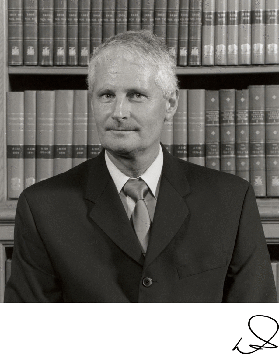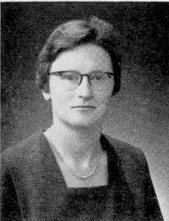Related Research Articles

The Institution of Civil Engineers (ICE) is an independent professional association for civil engineers and a charitable body in the United Kingdom. Based in London, ICE has over 92,000 members, of whom three-quarters are located in the UK, while the rest are located in more than 150 other countries. The ICE aims to support the civil engineering profession by offering professional qualification, promoting education, maintaining professional ethics, and liaising with industry, academia and government. Under its commercial arm, it delivers training, recruitment, publishing and contract services. As a professional body, ICE aims to support and promote professional learning, managing professional ethics and safeguarding the status of engineers, and representing the interests of the profession in dealings with government, etc. It sets standards for membership of the body; works with industry and academia to progress engineering standards and advises on education and training curricula.

Julia Elizabeth King, Baroness Brown of Cambridge is a British engineer and a crossbench member of the House of Lords, where she chairs the Select Committee on Science and Technology. She is the incumbent chair of the Carbon Trust and the Henry Royce Institute, and was the vice-chancellor of Aston University from 2006 to 2016.

Sir James Fraser Stoddart is a British-American chemist who is Chair Professor in Chemistry at the University of Hong Kong. He has also been Board of Trustees Professor of Chemistry and head of the Stoddart Mechanostereochemistry Group in the Department of Chemistry at Northwestern University in the United States. He works in the area of supramolecular chemistry and nanotechnology. Stoddart has developed highly efficient syntheses of mechanically-interlocked molecular architectures such as molecular Borromean rings, catenanes and rotaxanes utilising molecular recognition and molecular self-assembly processes. He has demonstrated that these topologies can be employed as molecular switches. His group has even applied these structures in the fabrication of nanoelectronic devices and nanoelectromechanical systems (NEMS). His efforts have been recognized by numerous awards, including the 2007 King Faisal International Prize in Science. He shared the Nobel Prize in Chemistry together with Ben Feringa and Jean-Pierre Sauvage in 2016 for the design and synthesis of molecular machines.
Sir Eric Albert Ash was a British electrical engineer, past Rector of Imperial College and President of IEE, UK. He was elected an international member of the National Academy of Engineering in 2001 for innovations in optics and acoustics and for leadership in education.

James Laird Gray (1926–2010) was a Scottish engineer who helped develop several power stations in England and Scotland. An important figure in the field of steam turbine technology in the UK, he received the Thomas Hawksley Medal and the James Clayton Award from the Institute of Mechanical Engineers for his work at two nuclear power stations.

Sir William Arnot Wakeham FREng is a British chemical engineer. From 2001 to 2009 he was Vice-Chancellor of the University of Southampton.

Arogyaswami J. Paulraj is an Indian-American electrical engineer, academic. He is a Professor Emeritus (Research) in the Department of Electrical Engineering at Stanford University.
Sir Robert Keith O'Nions, is a British scientist and ex-President & Rector of Imperial College London. He is the former Director General of the Research Councils UK as well as Professor of the Physics and Chemistry of Minerals and Head of the Department of Earth Sciences at the University of Oxford.

Sir Charles Edward Inglis, was a British civil engineer. The son of a medical doctor, he was educated at Cheltenham College and won a scholarship to King's College, Cambridge, where he would later forge a career as an academic. Inglis spent a two-year period with the engineering firm run by John Wolfe-Barry before he returned to King's College as a lecturer. Working with Professors James Alfred Ewing and Bertram Hopkinson, he made several important studies into the effects of vibration on structures and defects on the strength of plate steel.

Anthony Glyn Evans was Alcoa Professor of Materials, professor of Mechanical Engineering, director of the Center for Multifunctional Materials and Structures and co-director for the Center for Collaborative Engineering Research and Education at the University of California, Santa Barbara, United States.

Christofer "Chris" Toumazou, CEng is a British Cypriot electronic engineer. He is perhaps best known for inventing a fast and portable means of genome sequencing, following his 13-year-old son's diagnosis with end stage kidney failure through a rare genetic mutation.

Sir Hugh Ford FREng FRS was a British engineer. He was Professor of Applied Mechanics at Imperial College London from 1951 to 1978.
Donal Donat Conor Bradley is the Vice President for Research at King Abdullah University of Science and Technology (KAUST), Saudi Arabia. From 2015 until 2019, he was head of the Mathematical, Physical and Life Sciences Division of the University of Oxford and a Professor of Engineering Science and Physics at Jesus College, Oxford. From 2006 to 2015, he was the Lee-Lucas Professor of Experimental Physics at Imperial College London. He was the founding director of the Centre for Plastic Electronics and served as vice-provost for research at the college.
Frederick Michael Burdekin is a British civil engineer, and emeritus professor at University of Manchester Institute of Science and Technology and the University of Manchester.
David John Ewins was a British mechanical engineer. He was Director of the Bristol Laboratory for Advanced Dynamics Engineering (BLADE) at University of Bristol from 2007 to 2015.

Jason Meredith Reese (24 June 1967 – 8 March 2019 was a British engineering scientist, and Regius Professor of Engineering at the University of Edinburgh.

Anne Neville was the Royal Academy of Engineering Chair in emerging technologies and Professor of Tribology and Surface Engineering at the University of Leeds.

Anne Rosemary Chamney CEng MIMechE was a British mechanical engineer specialising in medical equipment. She is best known for her invention of a novel oxygen tent which was much cheaper than existing tents, much lighter and therefore easier to transport.
Michael (Mike) Lowe FREng is a British mechanical engineer. Since 2019, he has been the Head of the Department of Mechanical Engineering at Imperial College London. He is a Professor in Non-Destructive Testing (NDT), with particular interests in structure-guided ultrasound, wave theory, wave scattering, materials characterisation, and analytical and numerical modelling.
Daniele Dini FREng FIMechE CEng is an Italian/British Mechanical Engineer. He is a Professor of Tribology at Imperial College London, where he is Head of the Tribology Group. Tribology is the science and engineering of friction, lubrication and wear.
References
- ↑ "New Fellows 2004" (PDF). Royal Academy of Engineering. Archived from the original (PDF) on 19 March 2012. Retrieved 25 July 2011.
- ↑ PJGILL. "Imperial celebrates three new Royal Society Fellows". Imperial.ac.uk. Retrieved 6 December 2014.
- ↑ "List of prize winners recipients of the James Clayton Prize". Institute of Mechanical Engineers. 4 August 2010. Archived from the original on 1 October 2011. Retrieved 25 July 2011.